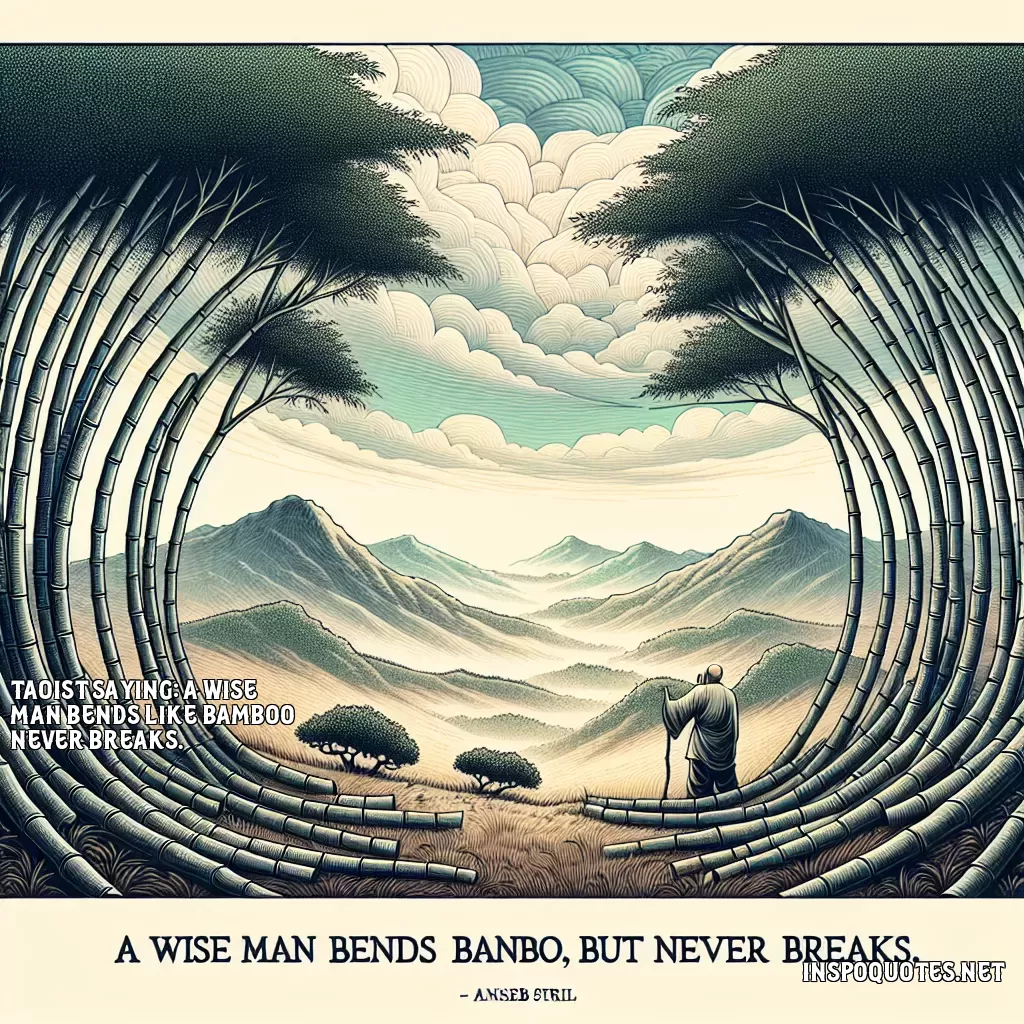
Taoist Saying: A wise man bends like bamboo never breaks.
Author: Laozi
👁️ 10 views
The Taoist saying "A wise man bends like bamboo never breaks" encapsulates a philosophy of resilience, adaptability, and strength through flexibility. In Taoism, the concept of going with the flow and adapting to circumstances is central to cultivating inner harmony and wisdom. This saying uses the metaphor of bamboo to illustrate these ideas. Bamboo is renowned for its strength and flexibility. In the face of strong winds and storms, bamboo bends but does not break, unlike more rigid plants or trees that might snap under pressure. This property of bamboo is a powerful symbol for human behavior and attitudes. The "wise man" in the saying represents someone who understands the importance of flexibility in life. Instead of rigidly resisting change or adversity, he adapts, bending to accommodate life's pressures and challenges. By bending, or adapting, the wise person avoids the metaphorical "breaking" that can happen when one is inflexible. Life inevitably presents unexpected challenges and changes, and being overly rigid can lead to unnecessary stress or even failure. Taoism teaches that wisdom lies in recognizing the flow of life and learning to adjust one's behavior accordingly. Furthermore, this saying implies that true strength does not necessarily come from inflexibility or hardness but from resilience and the ability to yield. In a world that often values toughness, this Taoist wisdom suggests that the key to enduring life's inevitable storms is to be like bamboo—flexible, yet steadfast. This allows one to maintain integrity and purpose without being broken by life's vicissitudes.
Quote By: Laozi
Laozi, also known as Lao Tzu, was an ancient Chinese philosopher and writer, traditionally considered the founder of Daoism (Taoism) and attributed as the author of the "Dao De Jing" (Tao Te Ching), a foundational text of the philosophy. Believed to have lived in the 6th century BCE during the Zhou Dynasty, Laozi's teachings emphasize harmony with the Dao (Tao), natural simplicity, and the pursuit of wisdom through humility and non-action (wu wei). Revered as a sage, his influence extends beyond philosophy into spiritual and political thought throughout Chinese history and beyond.
Bio added on: 2025-02-13 13:50:25